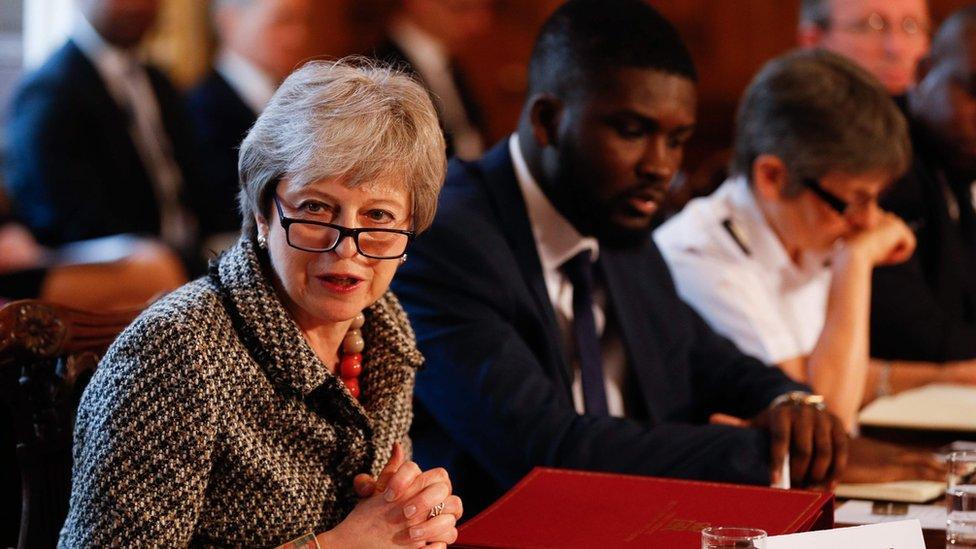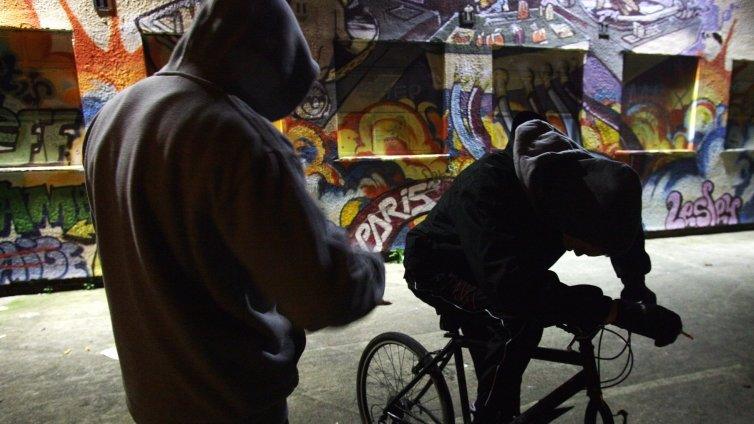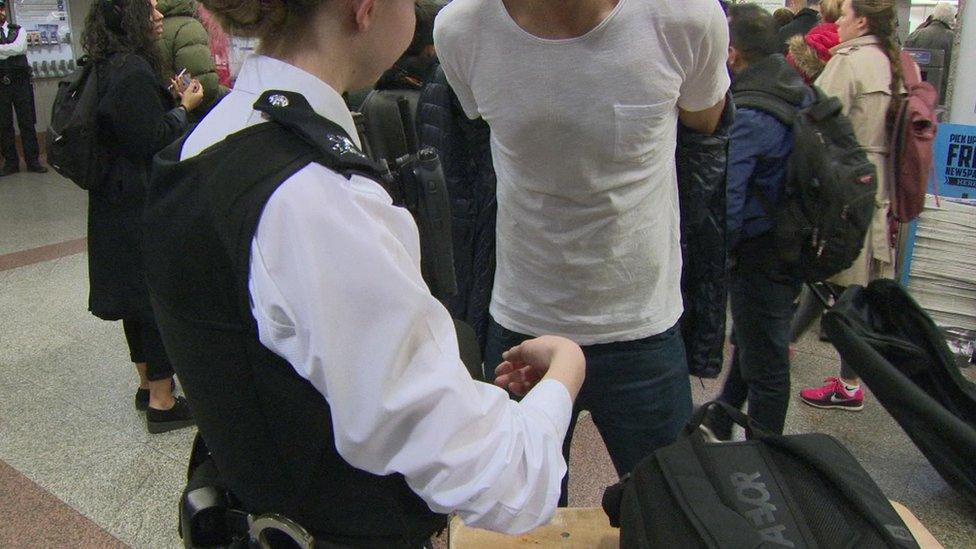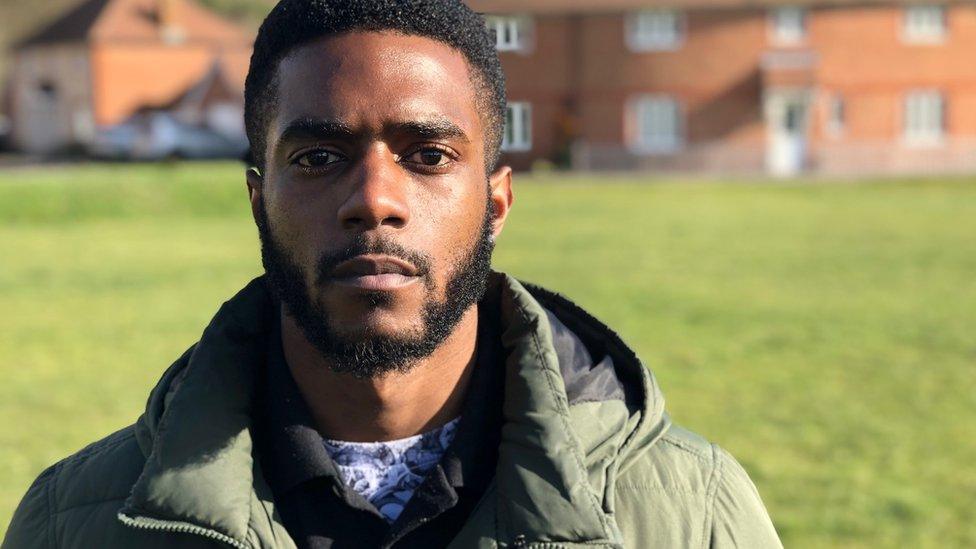Violent crime: Police cannot 'arrest' the issue away - May
- Published

Violent crime is an issue that cannot be solved solely by increasing police powers, Theresa May has warned.
Speaking at the start of a youth violence summit at Downing Street, the prime minister said the issue needed a "great cooperated long-term effort" from numerous bodies.
"We cannot simply arrest ourselves out of this problem," she added.
The summit comes after the Home Office announced proposals for teachers and NHS workers to help tackle youth crime.
Unions are resisting the plans, and say making teachers and nurses responsible for spotting and reporting youth violence is impractical, and could make the problem worse.
The youth violence summit, which focuses on England and Wales, will involve more than 100 experts, including Met Police Commissioner Cressida Dick and Baroness Newlove, the victims' commissioner for England and Wales.
Opening the event, the PM said: "In recent months we've seen appalling number of young lives cut short or devastated by serious violence crime including a number of horrifying incidents this weekend.
"In many cases the perpetrators of these crimes are as young as their victims and this is something that has to be of deep concern to us all."
The prime minister has previously faced criticism after insisting there was "no direct correlation" between police cuts and a rise in violent crime.
Under the new Home Office proposals, teachers, NHS workers and police officers in England and Wales could be held accountable for failing to spot violent crime among young people.
But unions for teachers and NHS staff have raised concerns that they will carry the blame if violent crime continues to rise.
Dr Mary Bousted, joint general secretary of the National Education Union, said: "Neither the blame for, or the solution to, violent crime can be laid at the door of schools or front-line hospital staff."
She said schools already had "strong safeguarding practices in place" and added: "The problem is what happens after issues of concern have been identified."
The Royal College of Nursing, meanwhile, expressed concerns that obligations to report people involved in violent crime could deter people "from seeking help for fear of being reported".

What do teachers think of the youth crime proposals?

Teachers' leaders are highly sceptical about these knife crime proposals - suggesting it's a way of avoiding thornier questions such as the number of police on the streets.
Heads and teachers say they don't understand how in practice schools would be held "accountable" for reporting those at risk of knife crime.
"It is hard to see how it would be either workable or reasonable to make teachers accountable," says Geoff Barton, leader of the ASCL head teachers' union.
"What sort of behaviour would they be expected to report and who would they report to?" he says.
Schools are at risk of getting caught in a blame-game over knife crime, says Chris Keates, leader of the NASUWT teachers' union, who warns of teachers being "scapegoated".
If teachers were to face sanctions over spotting those at risk, she says it would create a "culture of defensive reporting", in which the police and social services would be swamped by referrals.

The government says its plan is intended to "help spot the warning signs that a young person could be in danger, such as presenting in A&E with suspicious injury, to worrying behaviour at school or issues at home".
Home Secretary Sajid Javid said: "The public health, multi-agency approach has a proven track record and I'm confident that making it a legal duty will help stop this senseless violence and create long-term change."
'Grinds us down'
Majella Fergus, 53, a biology teacher at a secondary school in Cumbria, told the BBC that in recent years both the government and parents had tried to transfer their responsibilities "onto the shoulders of teachers".
"Adding yet another non-teaching responsibility to the shoulders of strained teachers and squashed teaching time grinds us down further," she said.
"Knife crime is a much wider societal issue and it isn't just simply going to be fought by teachers."

Majella Fergus told the BBC she felt the government was trying to shirk its responsibilities
With 285 deaths from stabbings in 2017-18, the most ever recorded in the UK, ministers have come under increasing pressure to tackle knife crime.
As well as hosting the summit on youth violence in England and Wales, Mrs May will meet privately with families affected by knife crime.
- Published1 April 2019

- Published31 March 2019

- Published18 July 2019
- Published13 February 2019
